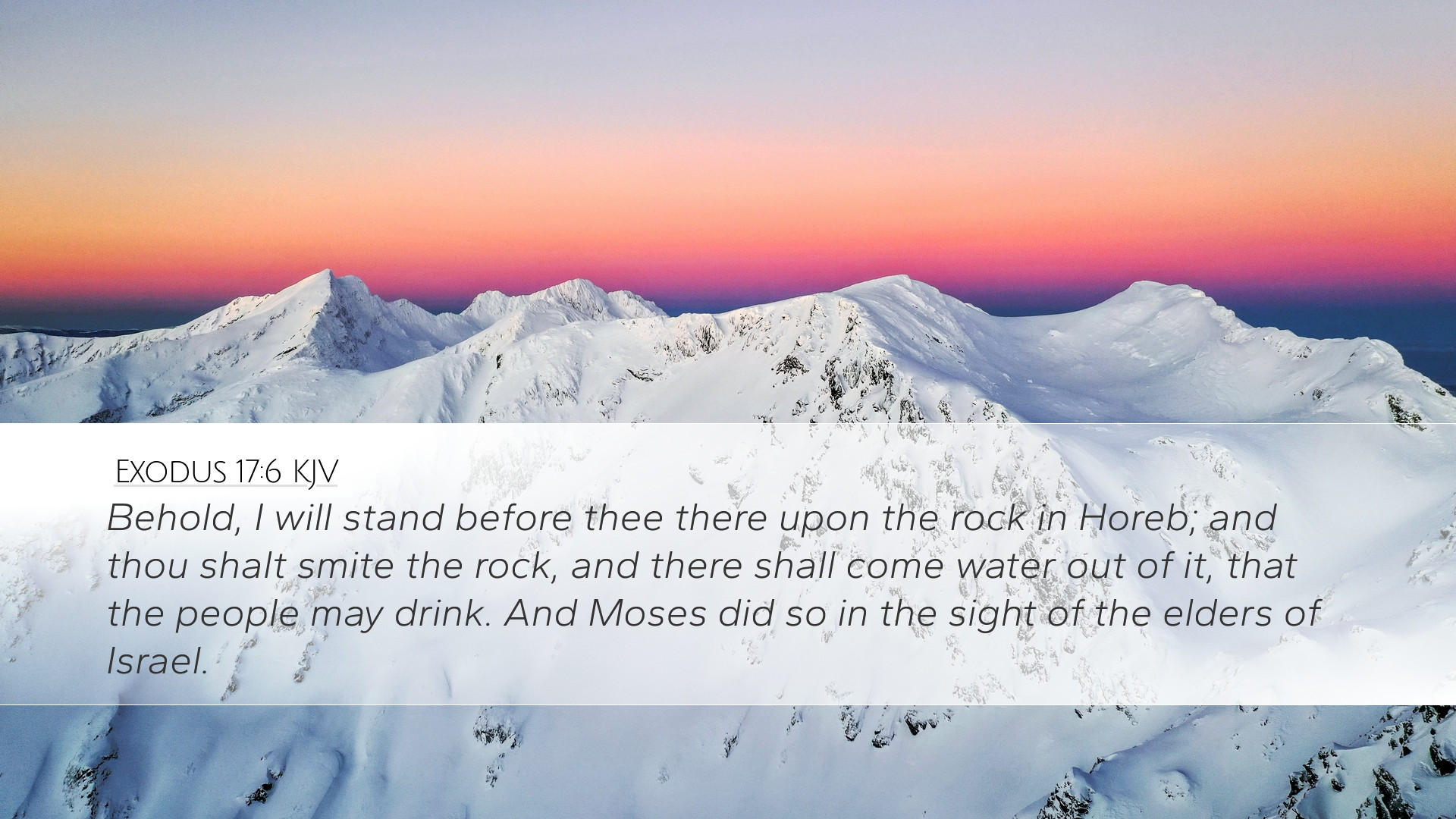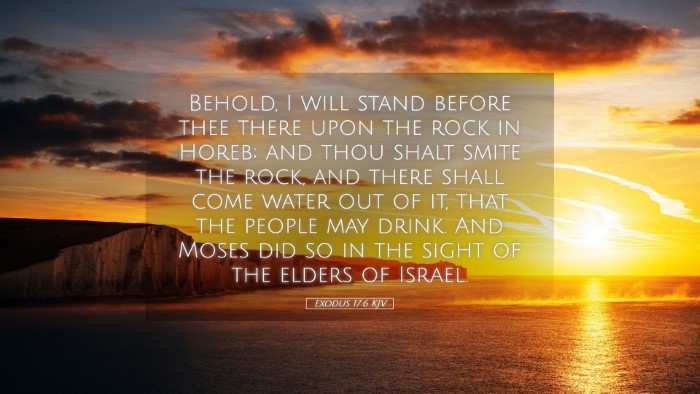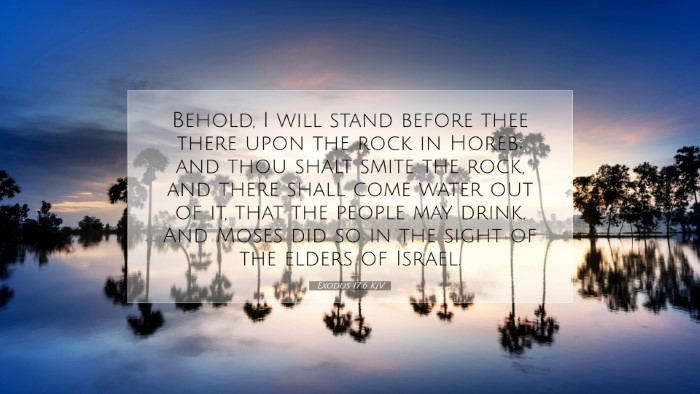Exodus 17:6 Commentary
Exodus 17:6 states, "Behold, I will stand before thee there upon the rock in Horeb; and thou shalt smite the rock, and there shall come water out of it, that the people may drink. And Moses did so in the sight of the elders of Israel."
This passage is rich in theological significance and offers profound insights into God's provision and the nature of faith.
Context and Background
The Israelites had left Egypt and, after experiencing various trials and manifestations of God’s power, found themselves in a desolate wilderness. They faced a critical shortage of water, which led to grumbling and despair among the people (Exodus 17:1-3). In their desperation, the people questioned Moses and, by extension, questioned God’s provision and leadership.
Theological Implications
This moment in Israel's journey symbolizes the greater spiritual truths that emerge throughout scripture. The dual themes of judgment and grace converge in God’s response to their need.
God’s Assurance
As noted by Matthew Henry, God's assurance to Moses reflects His unwavering commitment to His covenant people even amidst their lack of faith. This assurance serves two purposes: it affirms God’s omnipresence and omnipotence and emphasizes the necessity of obedience in faith.
The Rock as a Symbol
The rock struck by Moses is more than a literal source of water; it is a profound prophetic symbol pointing to Christ. Albert Barnes highlights the New Testament correlation where Christ, referred to as the "spiritual Rock" (1 Corinthians 10:4), provides spiritual sustenance as the smitten one for our transgressions. This typological interpretation is crucial for understanding the fulfillment of scripture in Christ and the concept of divine providence.
Obedience and Faith
The command to smite the rock serves as a direct lesson in obedience to God’s word. Adam Clarke speaks to the importance of executing God’s commandments without hesitation or alteration. This obedience is met with God's grace, as illustrated by the miraculous provision of water. It indicates that while human faith may waver, God’s faithfulness remains steadfast.
Lessons for Today
For pastors, students, theologians, and Bible scholars, the lessons drawn from this verse are not merely historical but applicable to contemporary Christian life.
- The Necessity of Spiritual Resources: Just as the Israelites required physical sustenance, believers today must seek spiritual nourishment from Christ.
- God's Sovereignty in Trials: The Israelite’s plight represents the struggles we face in our wilderness experiences. God’s promise to provide is a constant reminder of His sovereignty.
- The Importance of Community: Moses acted in view of the “elders of Israel,” suggesting the importance of communal faith and leadership in God’s plans.
Conclusion
Exodus 17:6 elegantly illustrates God's character as the provider and protector of His people. The striking of the rock serves as a metaphor for the journey of faith—illustrating that amidst our deepest need, God stands ready to meet us and quench our spiritual thirst.
This passage invites deep reflection on our own lives and encourages us to more profoundly understand Christ's role as the living water who satisfies our deepest longings.


